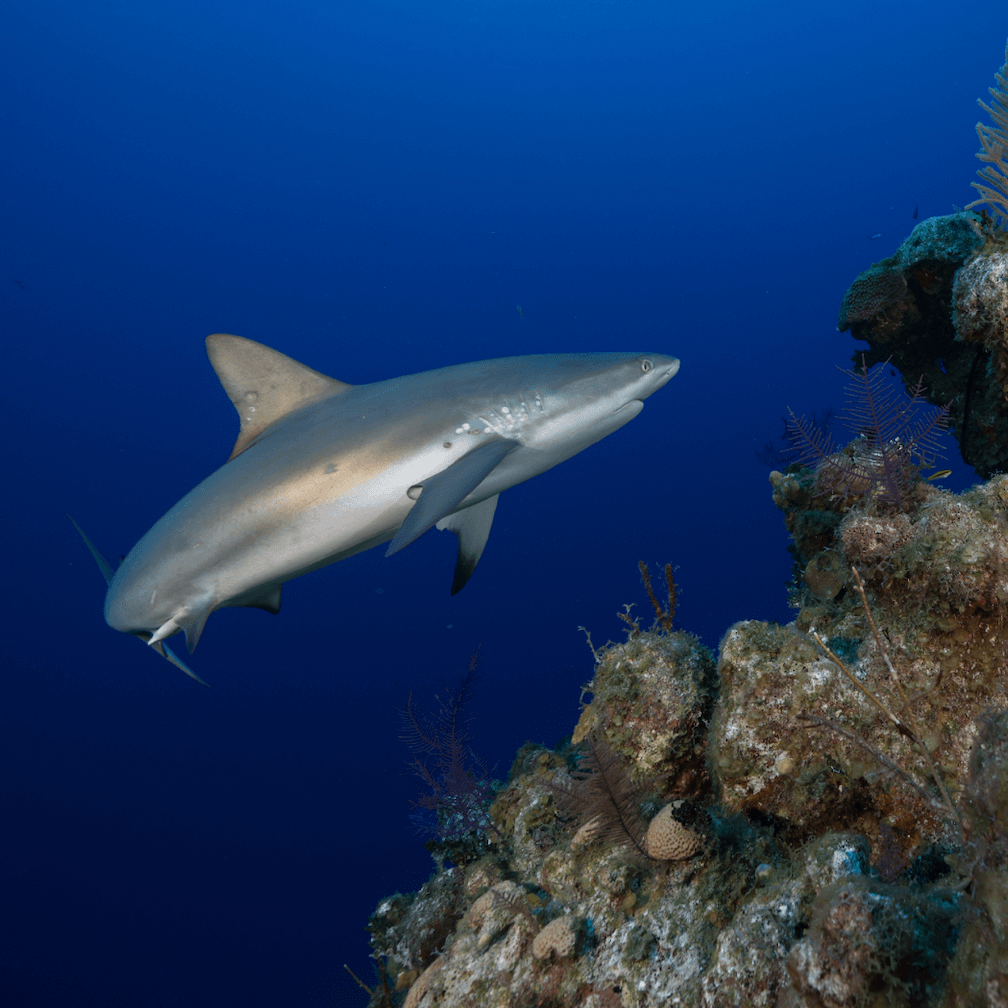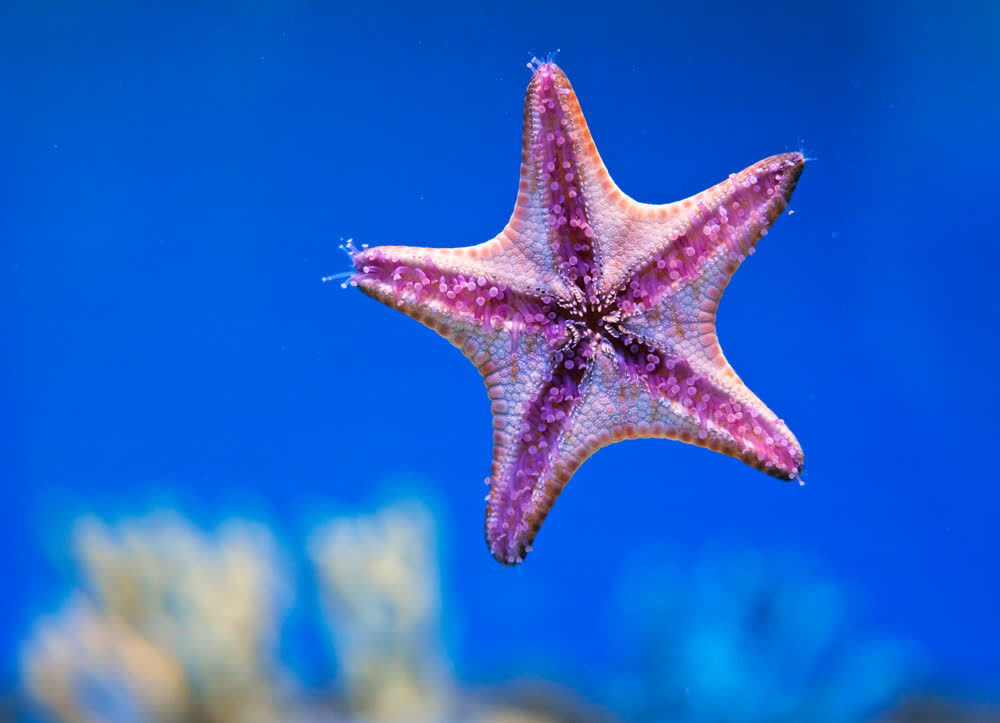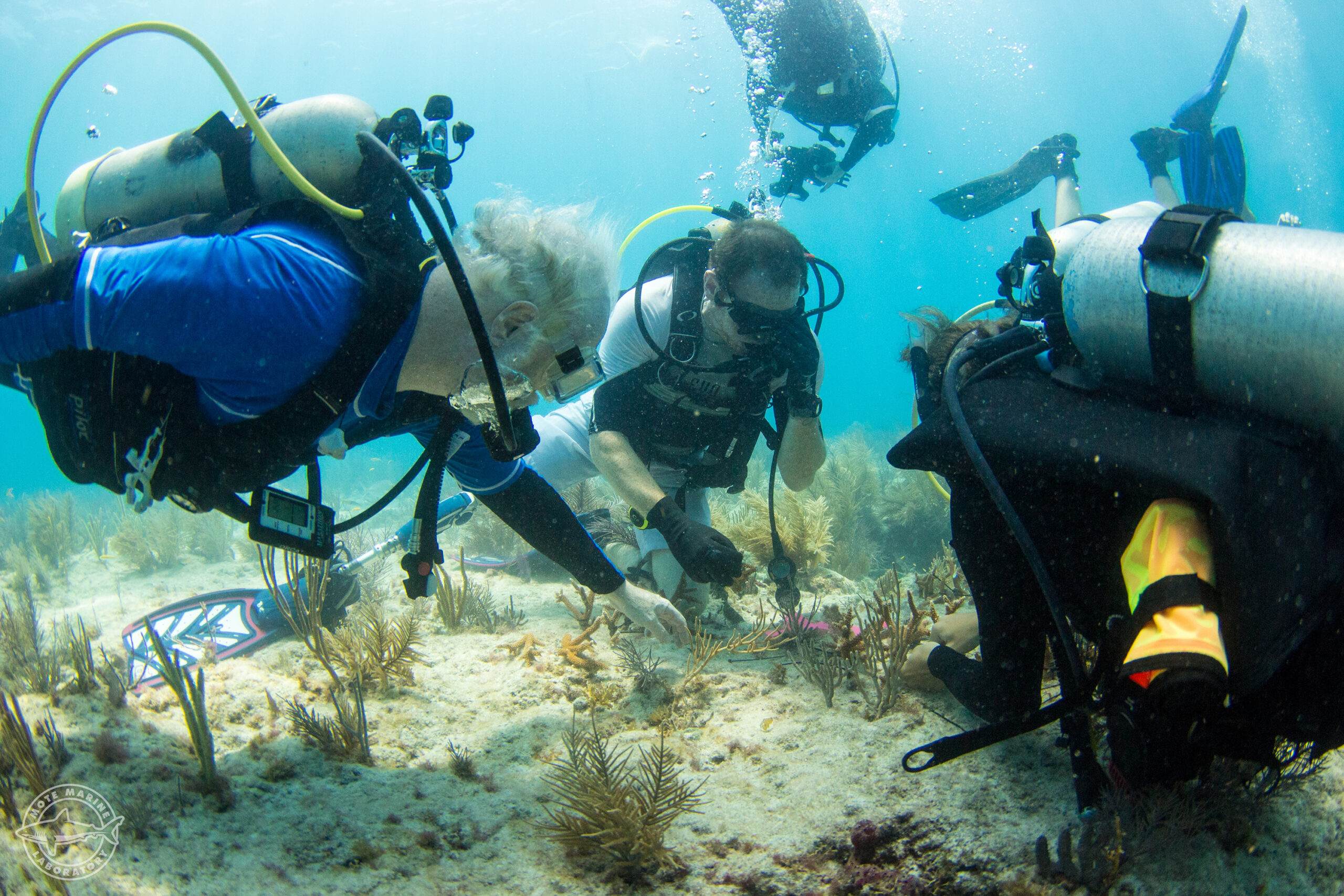 Reef sharks are in trouble worldwide. Here at Mote Marine Laboratory & Aquarium, we’re applying science—and people power—to save them through the initiative Expanding the Global FinPrint.
Reef sharks are in trouble worldwide. Here at Mote Marine Laboratory & Aquarium, we’re applying science—and people power—to save them through the initiative Expanding the Global FinPrint.
Progress to Date
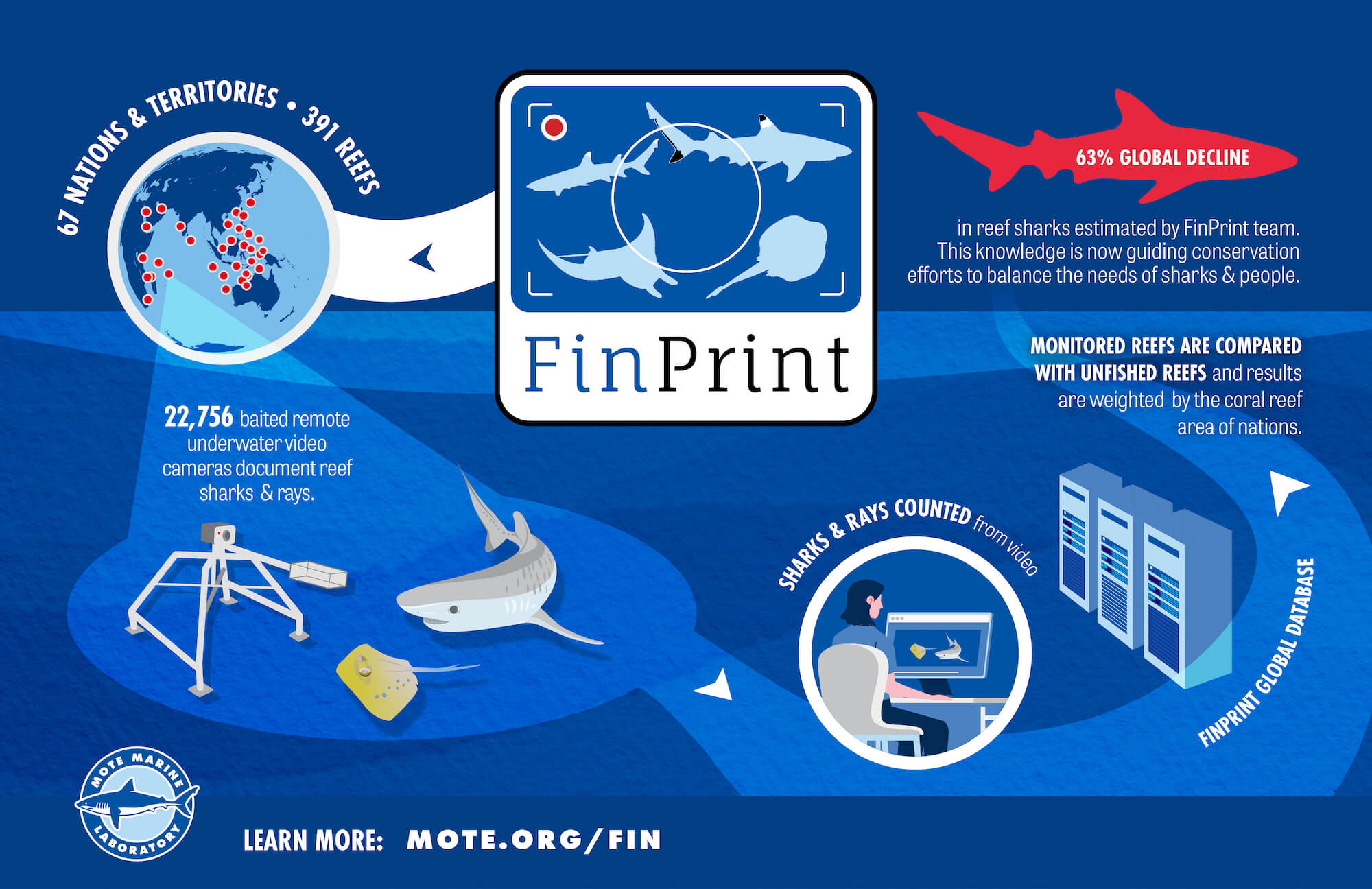
The world’s largest shark survey, Global FinPrint, is expanding into its second round of surveys building on the data gathered from previous years. Led by Dr. Demian Chapman, FinPrint Phase 1 deployed 22,000 baited remote underwater video stations (BRUVS) on about 400 reefs in 58 nations and territories from 2015-2018. The main findings appeared in Nature.
People power
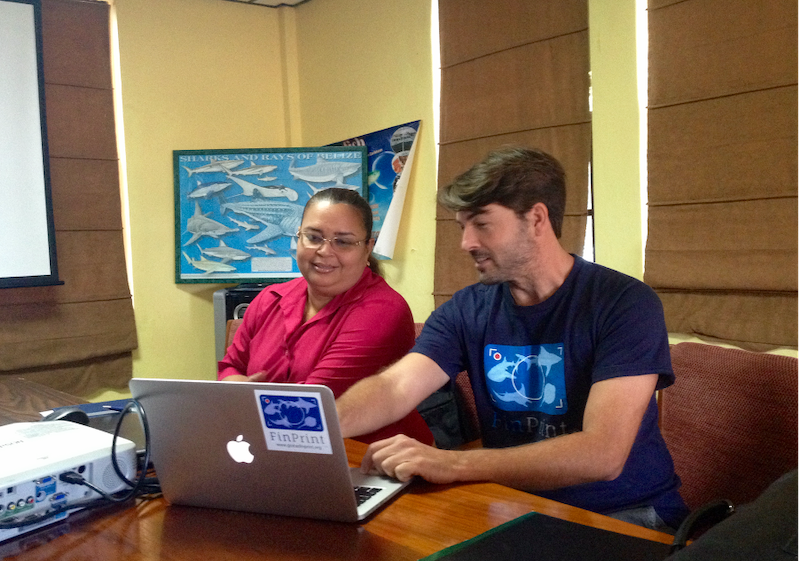
Global FinPrint showed that reef sharks were doing well in places where people invested in management approaches that were culturally and socio-economically suited to the local community. These management approaches included nationwide shark fishing bans (“shark sanctuaries”), nationwide limits on shark catches, marine protected areas (MPAs), or restrictions on longlines and gillnets.
Mote Marine Laboratory & Aquarium is working with the FinPrint data and a network of collaborators to turn these lessons learned into conservation successes—by investing in people power to better protect reef sharks. How? We are partnering with local grassroots organizations, governments and fisherfolk in countries where there is high conservation potential for reef sharks. Financial and scientific support are being directed to these people so that they can implement the right management approaches for their country, ensuring benefits for sharks and people.
Highlight Reel from Belize
New Developments
Thanks to the grant awarded by the Paul G. Allen Family Foundation, Mote is excited to announce it’s expanding into Phase 2 of Global FinPrint shark surveys. From 2024–2025, FinPrint will visit 26 nations to conduct follow-up surveys.
- Resurveying 50 Marine Protected Areas (MPAs) and controlled fish sites that were previously assessed in 2015–2018, to determine if MPAs are allowing reef shark populations to recover and thrive.
- The team will also assess the design features of the MPAs (size, shape, type of restriction, placement, management outside the MPAs), to see if these areas foster growing reef shark populations. By observing and understanding design flaws in the MPAs, our scientists can suggest adjustments and increase the effectiveness of these MPAs.
- Building onto and expanding the Global FinPrint dataset to test MPA effectiveness on reef shark conservation, globally.
Where are we working?
We have a global reach but our main focus is the tropical Western Atlantic and Caribbean, a region that our survey “red-flagged” because of depleted shark populations.

